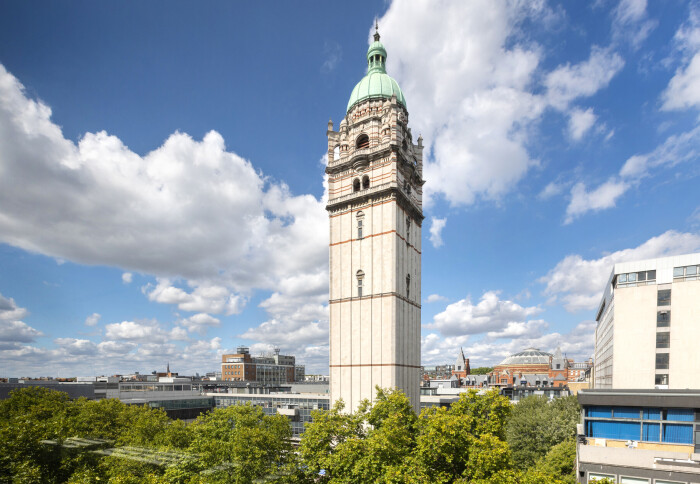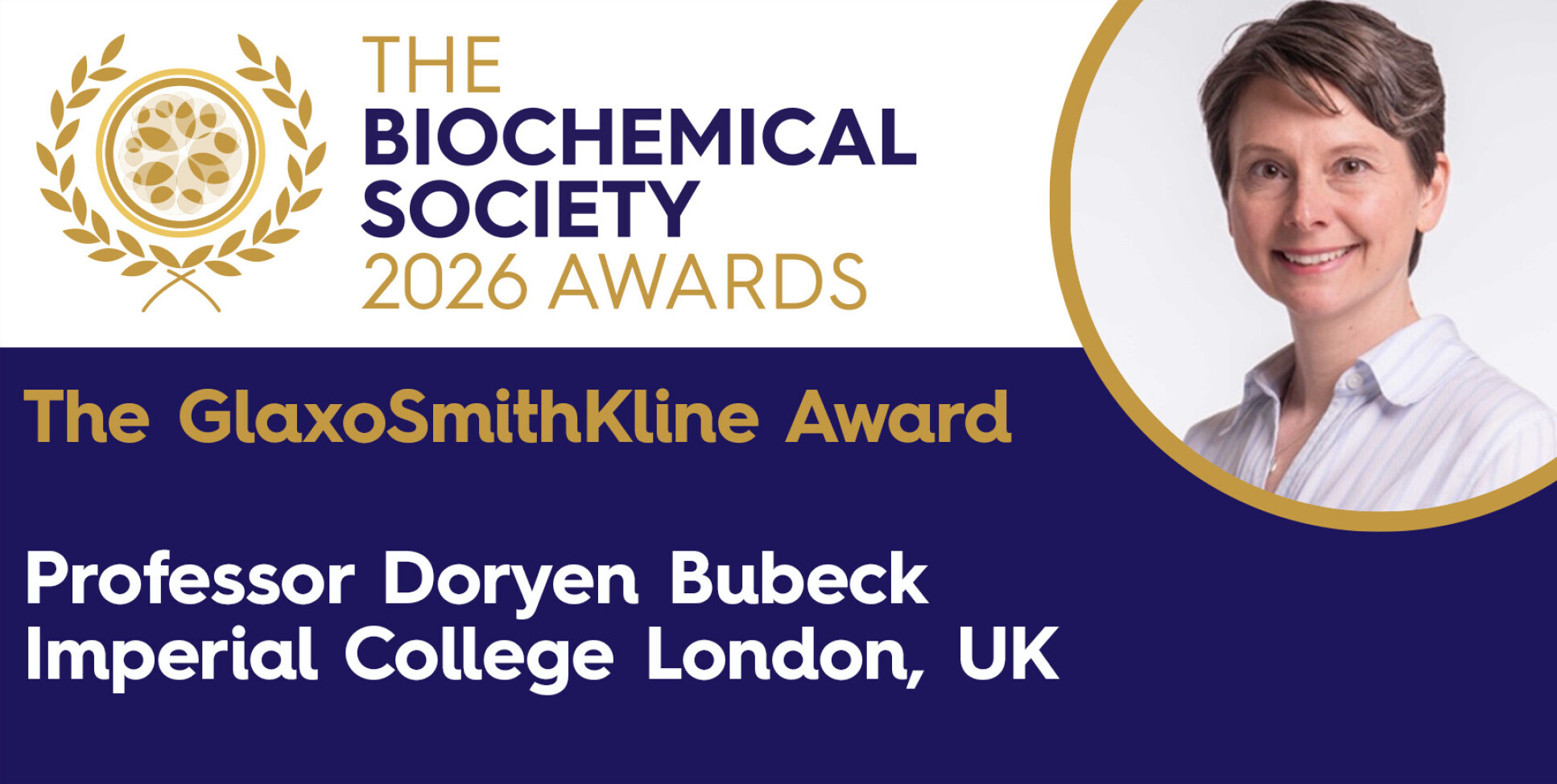Congratulations to our Biochemical Society Award 2026 winners
by Emily Govan

Two stars of the Department of Life Sciences have been recognised in the 2026 Biochemical Society Awards.
Each year, the Biochemical Society presents a series of prestigious awards that recognise excellence and achievement in science. Candidates are nominated by their peers and the winners are agreed by a judging panel of respected scientists from across a range of different scientific backgrounds.
This year, Professor Doryen Bubeck of Imperial's Department of Life Sciences has won the GlaxoSmithKline Award which is given in recognition of research leading to new advances in medical science by a mid-career biochemist.
Professor Bill Rutherford, also of the Department of Life Sciences, has won the Keilin Memorial Lecture, first awarded in 1964 to commemorate the late David Keilin, recognising outstanding work in the field of bioenergetics, electron transfer, and mitochondrial biology.
In all, the work and contribution of 17 eminent bioscientists, outstanding educators and exceptional early career researchers has been acknowledged in the annual awards. The recipients hail from eight different countries and each has been recognised for excellence in their field as well as a strong commitment to build, support, and nurture future talent. Winners of the 2026 Awards represent a cross-section of the molecular biosciences ranging from plant immunity and glycoscience to neurodegenerative diseases and cell death. The winners will receive their prize and deliver an award or medal lecture in 2026.
Many congratulations to our winners on these well-deserved accolades!
Professor Doryen Bubeck - GlaxoSmithKline Award winner

"I’m truly honoured to receive this award, which recognises the innovative approaches of my team and strengthens our dedication to tackling the most important questions in biomedical research." Professor Doryen Bubeck
Professor Bubeck is Professor of Structural Immunology in Imperial’s Department of Life Sciences and a satellite group leader at the Francis Crick Institute. Her research explores fundamental mechanisms in immunity and how pathogens hijack cellular pathways during infection. Using cryo electron microscopy she discovered molecular drivers underpinning assembly of the complement membrane attack complex, an immune pore that directly kills bacteria. By developing and applying novel model membrane systems in structural biology, she showed how human cells are protected from damage by the pore when the immune system switches on.
Professor Bubeck said: ‘I’m truly honoured to receive the Biochemical Society’s GlaxoSmithKline Award for my research in structural immunology. It recognises the innovative approaches of my team and strengthens our dedication to tackling the most important questions in biomedical research.’
Professor Bill Rutherford - Keilin Memorial Lecture

Professor Rutherford is a field leader in photosynthetic bioenergetics, focusing on photochemical reaction centres and water oxidation. Evolutionary thinking gave him an edge when interpreting ambiguous biophysical data.
Bill followed his own interests when he came to Imperial, producing discoveries and concepts central to the field. These include: i) the Photosystem 2 (PS2) chlorophyll triplet responsible for singlet oxygen-induced photodamage that limits plant growth, ii) the PS2 primary electron donor, ChlD1; iii) the mechanism of PS2 herbicides (photo-oxidative stress), iv) the origin and mechanism PS2 thermoluminescence, v) the role of bicarbonate in PS2 (protection by redox tuning).
"It is an honour to be on the list of Keilin awardees that includes the names of researchers who have been variously my heroes or friends (and sometimes both) during my career. " Professor Bill Rutherford
In 2012, Bill introduced the concept that redox tuning is required for life in O2, explaining anomalies in photosynthetic and non-photosynthetic bioenergetics. This interest in energy accounting opened new research directions. In 2018 his team showed long-wavelength photochemistry in chlorophyll-f-containing photosystems: a major surprise. This work i) changed the understanding of energy limitations in photosynthesis, ii) linked the number/colour/location of the light-collecting chlorophylls to the bioenergetics of charge separation, iii) provided design concepts for more efficient photosynthesis; and iv) launched a new and active field.
Professor Rutherford said: ‘It is an honour to be on the list of Keilin awardees that includes the names of researchers who have been variously my heroes or friends (and sometimes both) during my career. Like Keilin, I worked for some years in France and did my own thing, enjoying myself with a wide range of spectroscopic approaches.’
Professor Dan Davis, Head of the Department of Life Sciences, said: 'It is wonderful that two of our scientists have been recognised by these awards. Both Professor Bubeck and Rutherford lead exciting and important research programs. And more than that: as well as the scientific discoveries they and their teams have made, they each teach and inspire the next generation of scientists too. We are deeply proud of them winning these awards.'
Article text (excluding photos or graphics) © Imperial College London.
Photos and graphics subject to third party copyright used with permission or © Imperial College London.
Reporter
Emily Govan
Department of Life Sciences